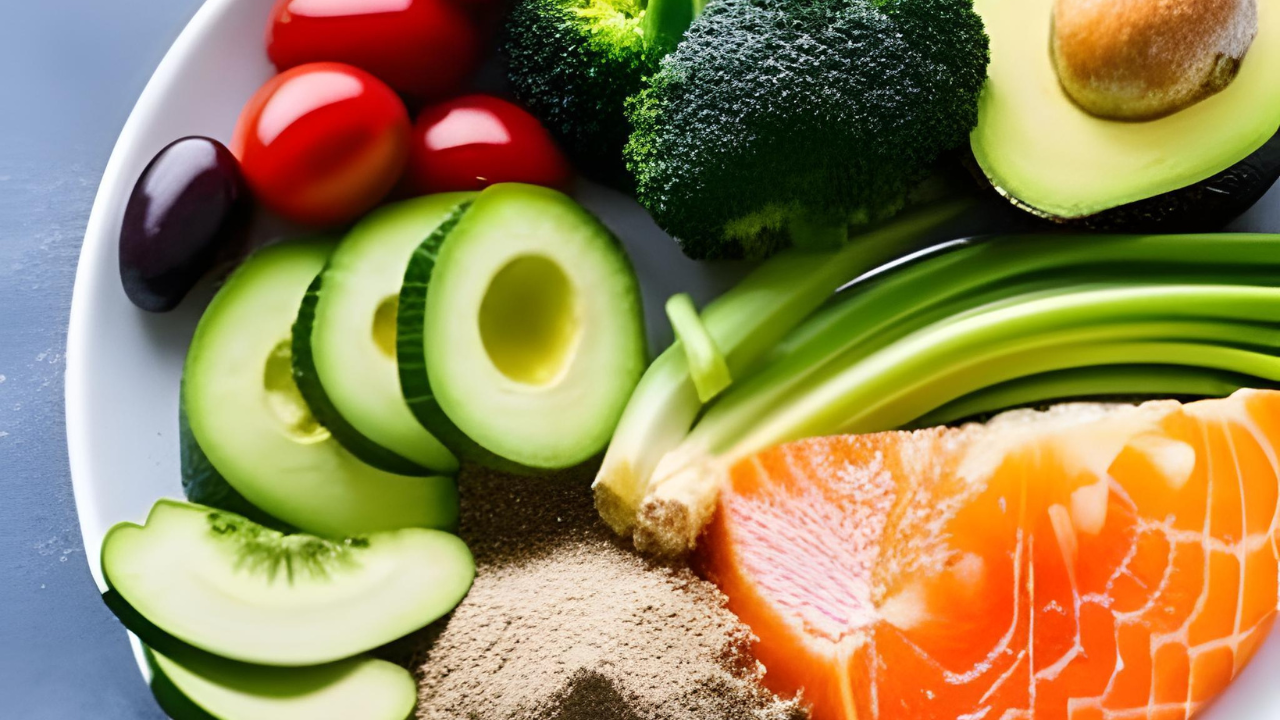15 Of The Wonderful Nutrient-Dense Foods For Your Health

15 Of The Wonderful Nutrient-Dense Foods For Your Health
What are nutrient-dense foods?
So, nutrient-dense foods are basically those chock-full of crucial vitamins and minerals but aren’t heavy on the calories. Since nutrient-dense foods sources such as fruits, whole grains, lean protein, and healthy fats are packed in nutrition and have less quantities of calories.
Fruits, veggies, whole grains, lean proteins and healthy fats are the MVPs of a solid diet because they’re loaded with essential nutrients.
Why wouldn’t you want to eat nutrient-dense foods when they’re packed with essential goodies that keep your body ticking, boost your immune system, and even ward off nasty chronic diseases?
Eating foods packed with nutrients is a must if you want your health to be top-notch. However, nutrient-dense foods give the nutrients and minerals your body needs to perform its duties appropriately.
Eating nutrient-rich foods like fruits, whole grains, and veggies isn’t just about weight management – it can also reduce your chances of getting hit with chronic illnesses such as heart disease, diabetes, or even certain cancers.
So, eating nutrient-rich foods that are low in calories can make you feel full and help manage your weight, because you’re getting fewer calories but more nutrients.
Since these foods are low in calories but high in nutrients, they can help you feel satisfied while consuming fewer calories. So eating more of these low-cal, nutrient-dense foods can help you lose or maintain your weight since they fill you up without packing on the calories.
So, chowing down on nutrient-packed foods like fruits, veggies, whole grains, lean proteins and healthy fats can make you feel full without overdoing it on the calories – plus they give your body all those crucial vitamins and minerals it needs.
Fruits, veggies, whole grains, lean protein, and healthy fats are well known to supply the nutrients you really want without being worried of calories increase in the body.
But, man, foods loaded with nutrients give us all the good stuff – vitamins, minerals, antioxidants and phytochemicals we need to stay in tip-top shape. Nutrient-dense foods give your body the vitamins, minerals, and other good stuff it needs to work right.
Also, foods packed with nutrients tend to have a lot of fiber which is super crucial for keeping your digestive system in top shape. Fiber’s a real game-changer – it keeps your bowel movements regular, fends off constipation, and nurtures a healthy gut environment.
Therefore, nutrient-dense foods may help prevent chronic diseases down the road. A whole bunch of these foods are packed with antioxidants, which are like superheroes fighting off the bad guys—those nasty free radicals in your body.
Foods loaded with antioxidants are your shield, they tackle the bad guys—free radicals causing havoc in your body, leading to long-term diseases.
Here are 15 superfoods you should be eating for peak health.
Spinach is a superfood champ, brimming with vitamins A, C, and K as well as essentials like iron and calcium. Spinach is like a superhero among veggies, jam-packed with vital vitamins and minerals.
Blueberries: These tiny berries are bursting with antioxidants, fiber, and vitamins C and K.
Salmon, rich in heart-healthy omega-3s and brain-boosting protein and vitamin D, is like a superfood for your ticker and noggin. Salmon, packed with omega-3s, protein, and vitamin D, is a real brain booster and heart health champ.
Quinoa: Packed with protein, fiber and various minerals, this gluten-free grain serves as a healthy swap for traditional carbs like rice or pasta. Quinoa, a gluten-free grain packed with protein, fiber and various minerals, stands as a healthful swap for your usual rice or pasta.
Almonds: A handful of almonds provides a good dose of healthy fats, fiber, protein, and vitamin E.
Sweet potatoes: These vibrant root vegetables are packed with vitamins A and C, fiber, and antioxidants.
Greek yogurt: Rich in protein and probiotics, Greek yogurt is a nutritious snack that supports gut health.
Broccoli: This cruciferous vegetable is high in vitamins C and K, fiber, and antioxidants.
Chickpeas, just like broccoli, pack a punch with their nutritional benefits – they’re rich in protein and fiber as well as folate. Chickpeas, they’re not just versatile legumes; these little guys are packed with protein, fiber and folate.
Avocados, beyond being heart-friendly due to their monounsaturated fats, also pack a punch with fiber and an array of essential vitamins and minerals. Packed with good-for-your-heart monounsaturated fats, avocados also bring fiber, vitamins and minerals to the table.
Lentils: Packed to the brim with fiber, protein, and iron, lentils are a powerhouse of nutrition that can give any soup, stew or salad an extra healthy punch. Loaded with fiber, protein, and iron, lentils can seriously boost the health factor of your stews, soups or salads.
Oranges: Bursting with vitamin C, oranges are also a good source of fiber and antioxidants.
Chia seeds: These little powerhouses are jam-packed with omega-3 fatty acids, fiber, and antioxidants. Chia seeds pack a nutritional punch despite their tiny size.
Kale: Another nutrient-dense leafy green, kale is abundant in vitamins A, C, and K, as well as calcium and antioxidants.
Tomatoes, right? Packed with lycopene – a hardcore antioxidant, plus vitamins A and C to boot. These juicy fruits, loaded with the fierce antioxidant lycopene and packed to the brim with vitamins A and C, seriously kick up your nutrition game.
Slip nutrient-packed foods into your daily grub for a health boost without making meal prep feel like rocket science.
Getting nutrient-rich foods into your meals isn’t a tough task, it’s as simple as pie. Start by planning your meals around whole, unprocessed foods. In your meals, be sure to mix it up with a colorful range of fruits and veggies, wholesome grains like quinoa or brown rice, lean meats such as chicken or fish for protein, and don’t forget those healthy fats like avocados.
For a nutrient-packed meal, why not toss some spinach or kale into your salads and stir-fries? Replace refined grains with whole grains like quinoa, brown rice, or whole-wheat bread. Include a serving of lean protein, such as salmon, chicken breast, or tofu, in your main meals.
Remember to toss in good-for-you fats like avocados, nuts, and a drizzle of olive oil into your eating routine. Not just adding a tasty twist to your dishes, these fats also let your body effectively take in vitamins that need fat to be absorbed.
When you’re hustling between classes, grab a power-packed snack like almonds or Greek yogurt with berries to fuel your body.
When you’re hustling and need a healthy pick-me-up, choose snacks packed with nutrients. Grabbing a handful of something like almonds or walnuts gives you that hit of healthy fats and protein to keep you going. A bowl of Greek yogurt, jazzed up with a handful of berries and a dash of chia seeds, packs a punch as an incredibly tasty and nutrient-rich snack.
Here are some quick and easy snacks you can grab on the go: carrot sticks and hummus, apple slices with nut butter, or homemade trail mix. Choosing snacks like carrot sticks with hummus or trail mix with dried fruit provides you the energy to keep going all day while fitting in your backpack.
Nutrient-dense foods for specific health concerns
Certain nutrient-dense foods can be particularly beneficial for specific health concerns. Eating stuff like salmon, chia seeds, and walnuts is a smart move because they’re loaded with omega-3s that give your heart health a major boost. These wholesome fats are champs at dialing down inflammation and giving your heart health a solid boost.
For those looking to support their immune function, foods rich in vitamin C, such as oranges, strawberries, and bell peppers, can be beneficial. To strengthen the body’s defense against sickness, nutrient-rich produce like citrus fruits, berries, and bell peppers provide immune-fortifying vitamin C.
Whether you’re a lover of veggie or without gluten food, there’s yet an entire host of nutritious food sources out there for you to eat. If you’re vegan, lentils, chickpeas and quinoa pack a serious protein punch; for the gluten-free crowd, quinoa and brown rice are tasty go-tos.
To get the most nutrition, shop the perimeter for fresh produce and lean proteins, choosing organic when possible, and store properly in airtight containers to maximize nutrients.
When you’re on the hunt for nutrient-rich food, always go for fresh and top-notch choices. Look for colorful fruits and vegetables and opt for organic produce whenever possible to minimize exposure to pesticides.
Keeping your nutrient-packed foods fresh and full of goodness is all about smart storage strategies. Keep fruits and vegetables in the refrigerator to maintain freshness. To keep your nuts and seeds fresh, stash them in sealed containers somewhere cool and shadowy – this stops them from spoiling. Keep your grains, like quinoa and brown rice, in sealed containers stashed away in a cool and dry spot.
Nutrient-dense foods on a budget
Eating nutrient-dense foods doesn’t have to break the bank. Even on a tight budget, with some savvy planning and shopping, you can still indulge in a diet that’s both tasty and packed with nutrients. Start by buying seasonal fruits and vegetables, as they are often more affordable and packed with flavor.
Buying bulk bags of rice, oats, nuts, and other staples saves cash in the long run. Buying staples in bulk can save you money over time. But bulk deals, price comparisons between stores, and watching for sales can help you maximize savings on staples. Shopping at farmers’ markets or joining a community-supported agriculture (CSA) program can also be cost-effective ways to access fresh, locally grown produce.
Nutrient-dense recipes for delicious and healthy meals
Incorporating nutrient-dense foods into your meals doesn’t have to be boring or bland. But there are lots of yummy recipes with these healthy foods. Here’s a quick start guide for you:
Whip up a vibrant quinoa and veggie stir-fry, brimming with healthy ingredients. Stir-fry a mix of vibrant veggies like bell peppers, broccoli, and carrots using some olive oil. Add cooked quinoa and season with soy sauce or your favorite spices for a quick and nutritious meal.
Baked salmon with avocado salsa: Season salmon fillets with salt, pepper, and your favorite herbs. Bake in the oven until cooked through. Serve with a refreshing salsa made from diced avocado, tomatoes, red onion, and lime juice.
Chickpea and vegetable curry: Sauté onions, garlic, and spices in a large pot. Toss in some diced veggies like cauliflower and bell peppers, stir in cooked chickpeas and coconut milk for a rich flavor. Simmer until the vegetables are tender and serve with brown rice or quinoa.
Here’s a snapshot of how packing your meals with nutrient-rich foods can amp up both the flavor and health factor. Experiment in your kitchen with various ingredients and tastes to discover healthful meals that you genuinely enjoy.
How eating foods packed with nutrients can help control your weight.
Looking to maintain a healthy weight? Try adding foods that are high in nutrients but low in calories into your meal plan. Lean protein, fruits, veggies, and healthy fats pack more nutrients per calorie so you can eat more but keep calories down.
Including lean proteins, fiber-rich fruits and vegetables, and healthy fats in your meals can help you feel satisfied and prevent overeating. Proteins, fruits and veggies, along with healthy fats are your daily power boosters.
Remember that weight management is not just about the types of foods you eat, but also about portion sizes and overall calorie intake. But you’ve to tune in to when your body says it’s hungry or full and eat mindfully.
Omega-3s, antioxidants, B12, and vitamin D support brain health.
Consequently, to take advantage of life, we really have to feed our bodies and brains with nutritious food sources. Brain-boosting foods packed with omega-3s, antioxidants, and vitamins B12 and D – like fatty fish or walnuts – are key for maintaining mental health.
Salmon, sardines, chia seeds and walnuts are packed with omega-3 fatty acids – key for brain health, fighting off depression and slowing cognitive decline.
Blueberries, dark chocolate, and green tea, loaded with antioxidants, are like your brain’s best friends – they battle damaging inflammation and oxidative stress to sharpen your thinking and lift your mood.
Eggs, dairy, and lean meats are packed with Vitamin B12 which is key for keeping our brains ticking and balancing our moods by producing necessary neurotransmitters.
Getting enough vitamin D from sunlight or fortified foods helps your brain work properly. When your vitamin D levels dip, it can hike up your chances of feeling down and messing with your brain power.
However, foods rich in omega-3s, fiber, antioxidants, and potassium are particularly good for your heart.
To stay fit and well, it’s key to keep your ticker in top shape, and chowing down on nutrient-packed foods can really give your heart the boost it needs. But foods with omega-3s, fiber, antioxidants, and potassium help your heart the most.
So, stuff like fatty fish—think salmon or mackerel—and even chia seeds and walnuts are packed with omega-3s that can help keep your heart ticking right by chilling out inflammation and sorting out your cholesterol levels.
Chowing down on fiber-rich treats, for example whole grains, fruits, veggies and vegetables helps hold your weight under tight restraints as well as manages your cholesterol and glucose levels.
Foods loaded with antioxidants, think berries, dark chocolate and greens, are like your body’s personal defenders—they fight off harmful inflammation and oxidative stress to keep heart disease at bay.
Eating leafy greens, bananas, and sweet potatoes—foods packed with potassium—can give you a hand in bringing down your blood pressure and cutting down the chances of stroke.
Nutrient-dense foods for boosting immune function.
A strong immune system is crucial for defending against infections and maintaining good health. Foods packed with vitamins C, D, and E, zinc, and probiotics are your immune system’s best friends because they’re super rich in nutrients.
So, you know how vitamin C in stuff like citrus fruits, berries and bell peppers gives your immune system a serious lift and helps you battle common sicknesses?
Soaking up some sun and munching on fortified foods lets you get vitamin D, a real game-changer for your immune system. But if your vitamin D levels drop excessively low, it can debilitate your immune system and make you more defenceless against diseases.
Vitamin E, you’ll get it from nuts, seeds, and veggie oils – it’s a heavy-duty antioxidant that shields our immune cells from harm caused by oxidation.
Garbanzo beans, chicken breast, and cashews provide the zinc your body needs to keep your immune system strong.
You know, foods like yogurt, sauerkraut and kimchi that are fermented have these things called probiotics.
Plus, probiotics from fermented food sources can really help with keeping your gut healthy, which is needed for a good immune system.
Equally, you must eat various food sources like organic products, veggies, grains, proteins, and fats so your body gets every one of the nutrients it needs.
Just as it’s crucial to eat foods packed with nutrients, it’s equally vital to mix things up and introduce variety in your diet. To keep your body humming and health on point, mix up what you eat with a rainbow of fruits, grains, veggies along with lean proteins and beneficial fats.
Eating various food sources for example fruits, veggies, grains, proteins, and healthy fats provides your body with the range of nutrients it needs, so stir it up. Within each food group, aim for variety. For example, instead of always eating the same type of fruit, try different varieties like apples, oranges, and berries. Try swapping white rice or plain pasta for brown rice, quinoa, or whole wheat pasta.
Mixing up the colors on your plate is a savvy move to make sure you’re soaking up a spectrum of nutrients. Shooting for a spectrum of hues on your plate, by including various fruits and veggies, can gift you with a rich mix of vitamins, minerals, and antioxidants.
Conclusion: So, just like we savor the vibrant colors in our meals for diverse nutrients, when a riveting book morphs into a movie or storytelling springs to life visually – it’s all about how closely they match up with our imagination. But if you pack your diet with nutrient-rich foods, it’s like a health upgrade – they give your body the essentials to run smoothly and ward off chronic illnesses.
Eating nutrient-dense food varieties like fruits, vegetables, whole grains, lean proteins, and healthy fats gives the fundamental nutrients and minerals your body needs to work appropriately and forestall chronic health ailments. Loading up on fruits, veggies, whole grains, lean meats and good fats is like fueling your body with the premium stuff – it’s how you unlock top performance.
If you zero in on foods packed with nutrients – think fruits, veggies, whole grains, lean meats and good fats – you’ll be giving your body the crucial stuff it needs to hit peak performance. Whether you’re aiming to amp up your heart health, give your immune system a kick, or sharpen your mental focus, packing in nutrient-rich foods is the secret sauce for tapping into your best self.
Call To Action: However, nutrient-dense food varieties such as fruits and veggies that can provide your body what it needs to flourish. Your body’s going to seriously appreciate this healthy shift.
RELATED POSTS
Dehydration The Silent Killer That’s Costing You Your Health
Don’t let dehydration steal your health. Get tips for better energy, sharper focus, & disease prevention. Consult a doctor for serious symptoms.
Sustainable Eating: How To Make A Positive Impact On The Planet
Sustainable eating. It’s all about making food choices that are not only good for you, but also good for the planet.
The Best Whole Foods Vegan Desserts For Health-Conscious Individuals
Discover delicious and healthy whole foods vegan desserts made from plant-based, unrefined ingredients. Try easy recipes, smart swaps, and top store-bought options for guilt-free indulgence.
FOLLOW DISCOVERY BLOGGER









0 Comments